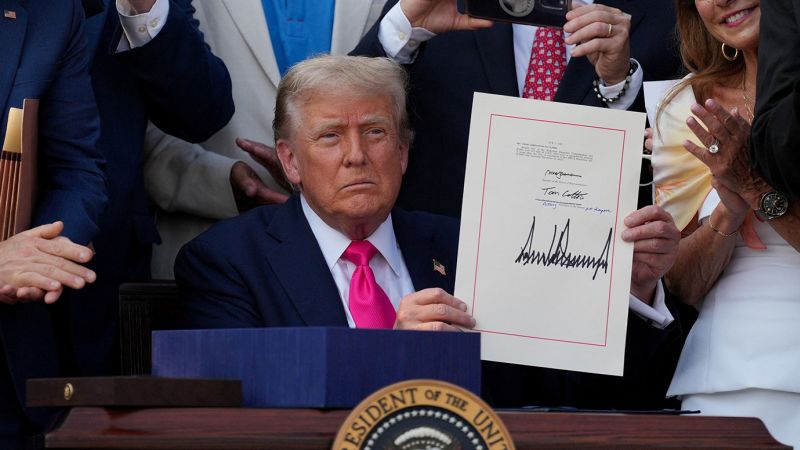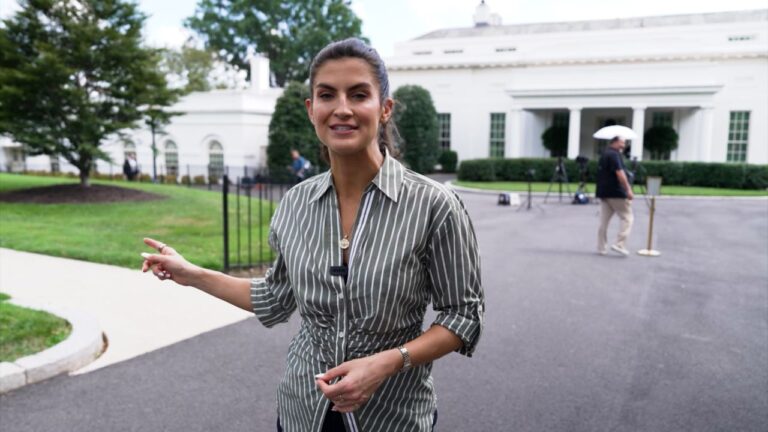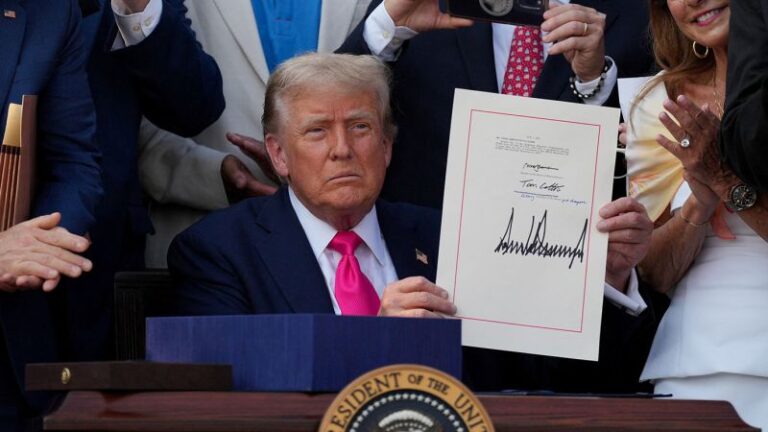On Friday, President Donald Trump made a bold assertion at the White House, claiming that his newly signed domestic policy bill was “the most popular bill ever signed in the history of our country.” He emphasized further, stating, “this is the single most popular bill ever signed.” However, this statement appears to be a stark contradiction to the reality depicted by numerous polls.
Polls consistently show that the bill is widely unpopular among the American public. A Fox News poll conducted in mid-June revealed that 59% of registered voters opposed the bill, while only 38% supported it, with 3% undecided. Similarly, a Quinnipiac University poll from late June found that 55% of voters were against the bill, 29% were in favor, and 16% abstained from expressing an opinion. Furthermore, a Pew Research Center poll from early June indicated that 49% of adults opposed the bill, 29% supported it, and 21% were unsure.
Unprecedented Unpopularity
The overwhelming opposition to the bill is unprecedented in recent American legislative history. CNN’s chief data analyst, Harry Enten, commented on the rarity of such poor polling numbers, stating, “You just never see numbers this poor. I have been trying to look through the history books to find if there was another piece of legislation that was on the verge of passing that was as unpopular as this one, and…I cannot find one.”
According to CNN senior reporter Aaron Blake, the polling numbers make the bill “more unpopular than any piece of major legislation passed since at least 1990,” based on data analyzed by George Washington University political science professor Chris Warshaw. Data journalist G. Elliott Morris further highlighted the bill’s unpopularity, noting, “On average across pollsters and methods, 31% of Americans support the One Big Beautiful Bill, while 54% oppose it. That net rating of -23 is, to put it mildly, absolutely abysmal.”
Potential Misinterpretations and Historical Context
It is conceivable that President Trump might have access to private polling data that presents a different picture. Historically, the popularity of legislation can improve post-enactment as citizens begin to experience its benefits, as was the case with the Affordable Care Act, commonly known as Obamacare. However, if Trump has evidence supporting his claim of the bill’s unprecedented popularity, it was not shared during his announcement.
In addition to his claims about the bill’s popularity, President Trump made other statements that have been challenged for accuracy. He asserted, “we’ve delivered … no tax on Social Security for our great seniors.” Contrary to this claim, the bill introduces a temporary additional tax deduction of $6,000 per person aged 65 and older from 2025 through 2028, rather than completely eliminating taxes on Social Security.
Fact-Checking Additional Claims
According to the White House, the new deduction means that 88% of seniors will not pay tax on Social Security benefits, up from 64% under current law. However, millions of seniors in the remaining 12% will still be taxed, as will some Social Security recipients under the age of 65 who do not qualify for the deduction.
Furthermore, Trump reiterated a frequently made claim that President Joe Biden allowed “21 million” migrants into the country. Data shows that through December 2024, there were under 11 million recorded “encounters” with migrants during Biden’s administration, including many who were promptly expelled. Even considering an estimated 2.2 million “gotaways,” the total does not approach 21 million.
Looking Ahead
The controversy surrounding the bill’s popularity and the accuracy of related claims raises questions about the administration’s communication strategies and the potential impact on public trust. As the bill’s provisions begin to take effect, its true popularity may shift, but current data suggests a significant disconnect between presidential rhetoric and public opinion.
As the debate continues, the administration may need to address these discrepancies to maintain credibility and effectively communicate the bill’s intended benefits to the American people.




























